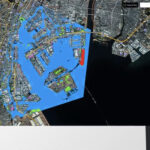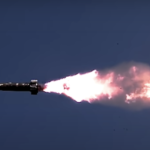March 30, 2022
A novel method for improving the positioning accuracy of GNSS receivers exploits a machine learning (ML) algorithm. The ML model uses the post-fit residuals, which are readily available after the position computation from the position, velocity and timing (PVT) engine, adoptable by existing receivers without requiring any modification. The performance of this method, demonstrated using data collected with mass-market receivers as well as a Google public dataset collected with Android smartphones, shows the practicality of the concept.
Read More >
By Inside GNSS













